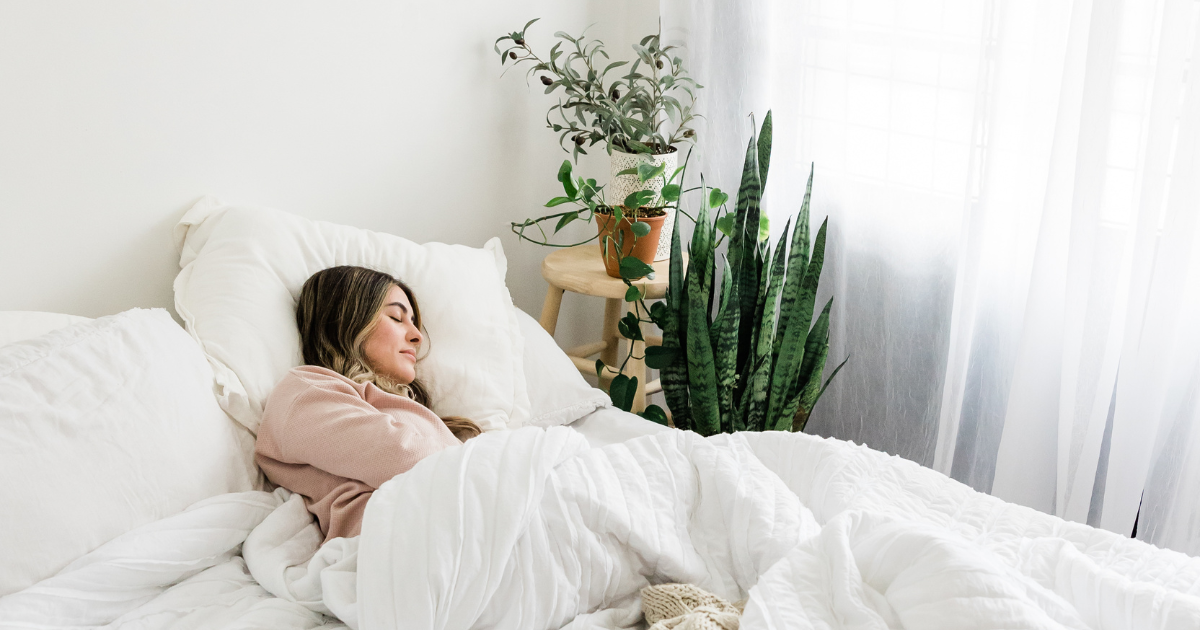Can Gut Issues Cause Insomnia?
Sleep plays a crucial role in how we feel on a day-to-day basis. From our energy levels to our ability to concentrate and regulate emotions, the quality of our sleep underpins almost every aspect of wellbeing. Yet many people struggle with insomnia, often without realising that gut health may play an important role.
In this blog, we explore the relationship between insomnia and gut health, as well as answering frequently asked questions about the two, including whether gut health can cause insomnia, whether improving gut health will help your sleep, and how to improve them both.
Can Gut Issues Cause Insomnia?
The short answer is yes: gut issues can contribute to insomnia. People with conditions like irritable bowel syndrome (IBS) and inflammatory bowel disease (IBD) often report poor sleep such as trouble falling asleep, waking frequently, or feeling unrested in the morning.
The reasons for this lie partly in both chemistry and inflammation. The gut plays a central role in producing neurotransmitters such as serotonin, which is a precursor to melatonin, the hormone that regulates sleep-wake cycles. If the gut microbiome is imbalanced, known as dysbiosis, this process is disrupted, and melatonin levels can fall, leading to insomnia.
GI issues can increase production of pro-inflammatory cytokines, which affect both sleep quality and circadian rhythms. Poor sleep then worsens gut inflammation, creating a cycle that is hard to break.
The Relationship Between Insomnia and Gut Health
The gut and the brain communicate constantly via what is called the gut-brain axis. This is a complex network involving the nervous system, the immune system, hormones, and metabolites produced by gut microbes.
Because of this two-way street:
Poor gut health disrupts sleep. Dysbiosis reduces the production of serotonin and GABA, both essential for rest and relaxation. Digestive discomfort, bloating, or reflux can also directly interfere with the ability to fall or stay asleep.
Poor sleep harms gut health. Studies show that a lack of quality sleep alters the gut microbiome, reduces microbial diversity, and increases inflammation, which can make GI conditions worse.
This relationship explains why many people with sleep problems also experience digestive issues, and why stress, a factor known to affect both gut and sleep, plays such a central role.
Can Improving Gut Health Help With Insomnia?
Yes, there is increasing evidence that improving gut health can support better sleep. Clinical studies suggest that interventions which rebalance the microbiome also lead to improvements in sleep quality, sleep latency (the time it takes to fall asleep), and mood.
For example, a study found that people who ate more fermented foods, such as kimchi, kefir, and miso, experienced improved sleep quality compared to those who did not. These foods provide beneficial bacteria and support a healthy gut ecosystem.
Can Probiotics Help With Insomnia?
Probiotics can help with insomnia, but they are not a standalone solution. Certain strains, such as Lactobacillus plantarum, have been shown in trials to improve sleep quality and reduce symptoms of depression in people with insomnia.
However, probiotics work best when combined with other lifestyle approaches such as dietary changes, stress management, and good sleep hygiene. A recent study was conducted with rats, which showed that a prebiotic-rich diet improved sleep quality and buffered stress responses, specifically increasing restorative sleep.
How to Improve Gut Health and Sleep
The good news is that many of the same strategies benefit both the gut and sleep. Here are some practical, evidence-based steps to improve your insomnia and gut health:
Eat a balanced diet. A Mediterranean-style diet, rich in fibre, polyphenols, and healthy fats, supports microbial diversity and reduces inflammation.
Incorporate fermented foods. Try yogurt, kefir, sauerkraut, kimchi, miso, or kombucha, which provide natural probiotics.
Add prebiotics into your diet. Foods such as garlic, onions, leeks, asparagus, and bananas nourish beneficial gut bacteria.
Manage stress. Practices like meditation, deep breathing, and regular exercise support both gut function and sleep.
Time your meals wisely. Avoid heavy, late-night meals which can disrupt circadian rhythms and cause reflux. Aim to eat dinner 2-4 hours before bed.
Stay hydrated. Dehydration can cause digestive discomfort that interferes with rest.
Bringing It All Together
If you’ve been struggling with insomnia and gut problems, you’re not alone. The two are deeply interconnected: poor gut health can disrupt neurotransmitters and increase inflammation, while poor sleep can throw off your gut microbiome. Stress often makes things worse.
By looking after your gut, through food, prebiotics, and lifestyle changes, you may find that your sleep improves too. And once you’re sleeping better, your gut gets a chance to heal as well.
Whether you are looking for easy recipes for gut health or a gut health supplement, we are here to help. Cool Stool® is a high-fibre, raw super seed mix crafted to naturally support digestion and gut health. Made from 100% natural ingredients like chia, flax, psyllium husk, and sunflower seeds, it is packed with prebiotics which help restore the gut.

